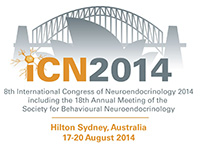Neuro2013, a joint meeting of the 36th Annual Meeting of the Japan Neuroscience Society, the 56th Annual Meeting of the Japanese Society for Neurochemistry, and the 23rd Annual Conference of the Japanese Neural Network Society, will be held at Kyoto International Conference Center during the four-day period from (Thu) June 20 to (Sun) June 23, 2013. The three societies have held a joint annual meeting in 2007 and 2010, and this will be the third time.
In addition, from (Sun) June 23 to (Thu) June 27, the 11th World Congress of Biological Psychiatry (WFSBP) is scheduled to take place in the same venue in Kyoto, and we are currently considering various measures, including the holding of a joint symposium and reductions in participation fees for delegates seeking to participate in both events.
Research into the brain has always been characterized as requiring a multidisciplinary research structure, from biological research into brain and neuro functions in terms of “hardware,” through to computational neuroscience seeking to discover the principles of operation of the brain. Particularly on this occasion, with the successive holding of Neuro2013 and the 11th World Congress of Biological Psychiatry, we are able to extend our considerations into the realm of biological psychiatry, meaning that in total we will cover a broad range of research subjects in the fields of neuroscience.
The 21st century is said to be the century of the brain, and there have been moves proposing to designate the ten-year period from 2010 as the “Decade of Psychiatric Disorders,” as momentum gathers towards attaining means of elucidating the enigma of psychiatric disorders, on the basis of the great strides in neuroscience that have been achieved to date. There are only a few countries in the world where the field of neuroscience is sufficiently advanced and where there are developed medical structures in place to tackle the challenge of psychiatric disorders. Japan is a country where brain research is being promoted on a national level, and where the foundations and standards for neuroscience research are highly advanced with a large pool of neuroscience researchers in place. It is therefore no exaggeration to say that it is Japan’s responsibility to find the causes of neuropsychiatric conditions that have such a tremendous impact on society, including depression and dementia.
To this end the promotion of basic research is absolutely essential. The latest developments in advanced research technologies, including optogenetics and brain-machine interfaces, are pointing the way towards possibilities for new applications, such as neuro-feedback. A new type of neuroscience research is now starting to bloom, through the fusion of basic research and clinical research.At Neuro2013 we aim to promote interdisciplinary and international cooperation, partnership with the clinical setting and also to nurture the next generation of young researchers. We are seeking to promote participation from a wide-range of fields, including participation from our colleagues at WFSBP. Accordingly we are planning plenary lectures by four prominent overseas researchers, and will also be holding all academic sessions in English. We will also be providing travel awards to researchers predominantly from Asia, and focusing also on clinical-based cooperation programs, as well as poster and general oral sessions for young researchers.
We look forward to welcoming you to the beautiful green city of Kyoto in June 2013.
- Tadafumi Kato
- Chair
The 36th Annual Meeting of the Japan Neuroscience Society - Hiroshi Kiyama
- Chair
The 56th Annual Meeting of the Japanese Society for Neurochemistry - Hiroaki Gomi
- Chair
The 23rd Annual Conference of the Japanese Neural Network Society








